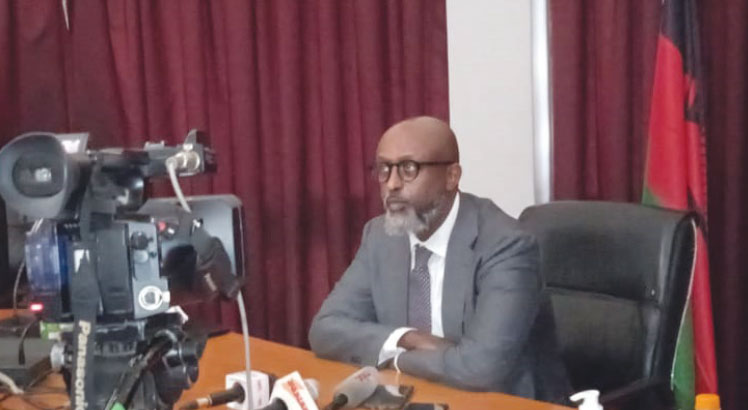IMF says Malawi yet to address issues
The International Monetary Fund (IMF) says the resumption of its Extended Credit Facility (ECF) with Malawi has delayed because Capital Hill is yet to resolve outstanding issues, including misreporting on some targets by the previous administration.
Briefing journalists in Lilongwe yesterday at the end of his mission in Malawi, IMF director of African Department Abebe Aemro Selassie said the fund was “seriously” concerned about a misreporting case about some of the targets during the implementation of the cancelled ECF on former governing Democratic Progressive Party’s (DPP) watch.
He said: “The IMF takes misreporting cases seriously and, in this regard, I appreciated the authorities’ efforts in delivering on the corrective actions.”

The Nation understands that the previous administration misreported on several occasions on gross reserve assets and net international reserves (NIR) for the period between 2018 and 2019 which remains a bone of contention between IMF and the new administration.
Selassie—who also met President Lazarus Chakwera and Vice-President Saulos Chilima yesterday—said that during his mission, he also underscored the centrality of the authorities’ actions to ensure debt sustainability. He said debt sustainability remains one key precondition for creating fiscal space for social and development spending.
Malawi’s public debt is currently seen at around 70 percent of gross domestic product (GDP), an increase from 65 percent of GDP reported in June 2020.
By December 2020, public debt had soared to K4.76 trillion, in nominal terms, an increase from K437 billion that was recorded in 2005, a year before the country was forgiven debt under the Highly Indebted Poor Countries (Hipc) initiative.
The situation automatically means that Malawi has breached both the IMF’s African Monetary Cooperation Programme and Southern African Development Community (Sadc) macroeconomic convergence programme which set recommended debt to GDP ratio at 60 percent for member States, including Malawi.
During the news conference, Selassie—who was accompanied by new IMF mission chief to Malawi Saito Mika and IMF resident representative in Malawi Farayi Gwenhamo—described both the misreporting case and rising public debt as legacy issues which the Tonse Alliance is battling and resolving with the IMF before the proposal for the new ECF programme is presented to the IMF Executive Board.
Selassie said: “I reiterated that the upfront actions to address debt sustainability would help to ensure that any financing that is provided by the IMF could be used to address pressing developmental challenges that are faced by the country. I assured the President that IMF staff would continue to support Malawi’s efforts.”
On his meeting with Chakwera and Chilima, Selassie said the engagement was “productive”, highlighting that they discussed matters related to economic and developmental prospects for Malawi.
He said he welcomed the authorities’ vision to create a self-reliant nation and upper-middle income country as envisioned in the Malawi 2063 blueprint which is the country’s second long-term national development plan after Vision 2020.
“I also commended them on their ongoing efforts to combat corruption and enhance transparency and accountability in the use of public resources,” said Selassie.
Minister of Finance Felix Mlusu, who expressed his frustration over continued resumption of the ECF during another news conference held last week, said Selassie’s visit was part of the ongoing negotiations for a new programme.
The minister said that specifically, the IMF came to conduct physical meetings for a deeper understanding of Malawi’s development challenges and the government’s economic reform agenda.
“The mission also came to delve deep into strategising on how best to unlock the gridlock linked to Malawi’s public debt situation, which I already informed you about a few days ago,” Mlusu said.
Malawi was implementing the ECF from April 2018 and it was expected to run until April 2021.
Through ECF, IMF provides financial assistance to member countries such as Malawi that are facing serious Balance of Payments problems.
The ECF also helps entrench macroeconomic stability, preserve debt sustainability, and advance governance reforms.





